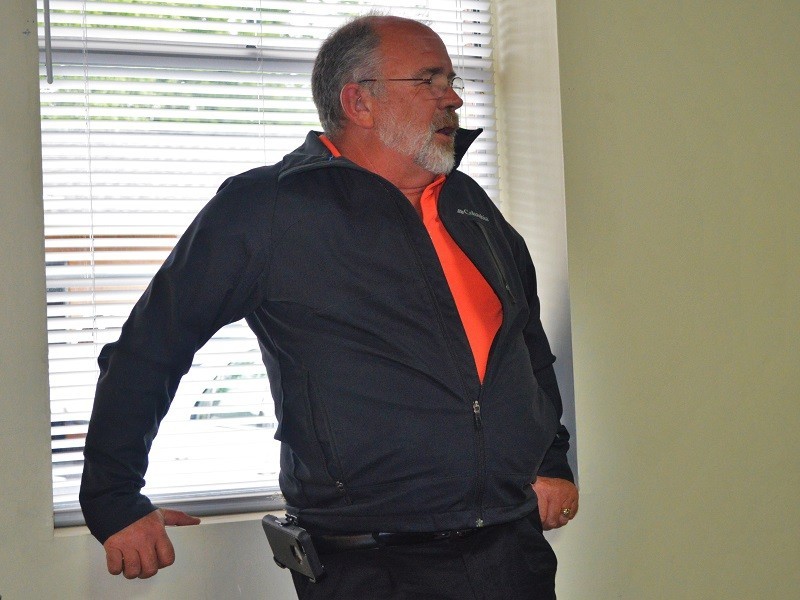LULA – A dozen or so years ago the economy of Hall County was booming: new businesses were entering the marketplace, those companies were hiring at a frantic pace and construction was robust as new subdivisions were being developed to provide housing for all those newly hired workers.
The quiet, bucolic and historic city of Lula in northeastern Hall County could “see” the growth coming up I-985, following the development along the Ga. 365 industrial corridor and settling into their back yards.
Leaders in the diminutive community (4.3-square miles in size and having a population of 1,438 residents according to the 2000 census) knew change was coming. They also knew their outdated waste treatment plant was in need of major upgrading, even replacement.
So the city fathers decided to think big; they opted to construct a new state-of-the-art waste treatment complex as the first step in readying their town for the growth headed their way.
They knew the process would be tedious and drawn-out, and they knew it would be expensive
“An investment of thirteen to fourteen million dollars,” Lula City Manager Dennis Bergin said as he reflected back on the plant’s origin.
Fortunately the State of Georgia through the federal American Recovery and Restoration Act was able to provide $6-million for the project, but borrowing the remaining $8.2-million was an ambitious undertaking for a city the size of Lula.
Undaunted, Lula leaders began the journey.
In June of 2006 they received the necessary zoning approval from Hall County to proceed with construction.
Years of engineering reviews and revisions, as well as the mandated environmental impact studies, saw ground broken on October 30, 2009.
By the end of 2010 the new plant was ready to come online.
All according to plan: NOT!
A couple of unexpected items along the way severely challenged the progress, even the continued existence of the 27-acre project at the end of Hagen Creek Court in the vacant Magnolia Station Subdivision.
A major economic downturn hit the nation in 2008 and it couldn’t have come at a worse time. “Only to get approved by the EPD, only to get the financing in place, only to have the economy go into the tank,” is how Bergin put the sudden reverse in fortune.
“But you know what? We made some good business decisions back then; we didn’t bite off more than we could chew, and today we have the benefit of that.”
Residential construction screeched to a halt (hence the vacant Magnolia Station Subdivision mentioned 3-paragraphs above) and growth was stymied.
Yet things at the waste treatment plant chugged along (no pun intended).
Bergin said, “Actually we’ve advanced all our payments with the waste treatment plant.” He said the balance of the initial loan for construction of the plant is now roughly $1.1-million.
The second unseen item that has challenged the plant is the decision by Hall County in the summer of 2013 to separate itself from Lula as regards the project.
That decision followed an extended period of disagreement between the city and the county on fiduciary responsibility. Lula even filed suit against the county for not paying monies the city said the county had promised to provide.
The suit was later withdrawn according to Bergin who said what is in the past, is in the past. He added that he hopes to soon set up meetings with Hall County administrators to discuss future relations and avoid duplicating sewer services, something prohibited under state law. (O.C.G.A. § 36-70-20 of 2008)
At Monday’s city council work session Bergin told council members, “We’re going to continue to pursue a better relationship and understanding with the county. We’re not going to play a ‘blame-game’; we’re just going to let common sense apply here.”









